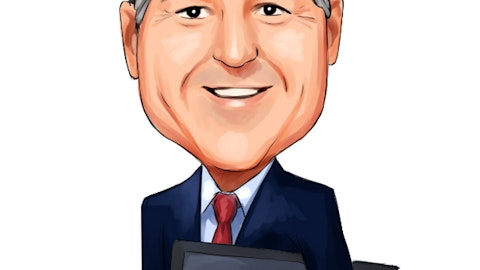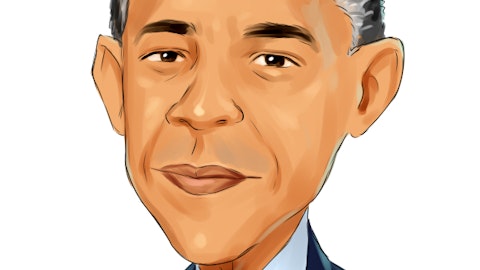This week brought along with it a slew of warnings and revisions from retailers who are starting to see the writing on the wall. Consumers are spending less than anticipated, and it looks as if the end of the year is going to bring more soft spending with it. Macy’s, Inc. (NYSE:M), Nordstrom, Inc. (NYSE:JWN), and Wal-Mart Stores, Inc. (NYSE:WMT) all dropped their forecasts for the back of the year. The question is — why?
Wal-Mart Stores, Inc. (NYSE:WMT) CEO Bill Simon blamed some of it on the expiration of the payroll tax. Macy’s, Inc. (NYSE:M) CFO thought consumers were reprioritizing and spending on cars and homes instead of on retail goods. Nordstrom, Inc. (NYSE:JWN) decided not to be nailed down and took the high road, saying that its “job is to stay focused and execute on what’s given [to it].”

Payroll taxes take their bite
The specter of lower spending from the expiration of the 2% payroll tax holiday has lingered in the air for months now. Wal-Mart Stores, Inc. (NYSE:WMT) has cited the payroll tax in the past three earnings statements it’s released, claiming that its customers have been suffering under the new weight. Target Corporation (NYSE:TGT) made a similar claim after its January sales came in low and claimed that the effects were felt throughout the first quarter.
At issue is the payroll tax holiday that expired at the beginning of 2013. The rate had been dropped to 4.2% from its normal 6.2% in a round of negotiations in 2010. During the political and social nightmare that was the end of 2012, the U.S. Congress let the holiday lapse. That meant an extra tax burden in the New Year, with estimates putting the annual impact at around $1,000 per average working household.
The reason some companies have cited the impact while others have looked for alternative explanations is largely due to demographics. The 2013 cost is around $20 a week, which means that households with strong earnings probably didn’t notice the change. The holiday also affected only the first $106,800 of income, meaning that high earners got a smaller proportional benefit.
As a result of all that, companies that focus on price and target lower- to middle-income consumers are the ones feeling the bulk of the squeeze. Nordstrom, Inc. (NYSE:JWN) is more concerned about cars and homes because its customers were much less likely to have felt the impact of the change. Wal-Mart Stores, Inc. (NYSE:WMT) and Target, on the other hand, may have been hit squarely in their wallets.
How the upper half spends
There’s not an end in sight to that issue, and so Wal-Mart Stores, Inc. (NYSE:WMT) and Target Corporation (NYSE:TGT) may continue to see pressure throughout the year. The higher-end retailers, like Nordstrom, Inc. (NYSE:JWN), are probably suffering from the issues that Macy’s, Inc. (NYSE:M) highlighted. Consumers have been buying in waves, and as house prices have started to recover, more consumers are spending their cash on homes. That means purchases of clothes and other goods are going back on the waiting list.
That balancing act can only explain so much, though. Consumers with lots of cash and no plans to relocate should be doing well. After all, they’re not in a position where they need to make choices about spending. Borrowing costs are low, and tax issues are less meaningful to them. While a study by Target Corporation (NYSE:TGT) found that about 75% of shoppers were aware of the payroll tax, and most were altering their shopping because of it, the same isn’t true at the top.
Research earlier this year found that a majority of high earners — incomes in excess of $500,000 — wouldn’t change their spending patterns based on tax increase. That’s good news for companies at the highest end of the consumer spectrum, including handbag designers and jewelry makers.
Cautious spending is the new normal
There is an oddly phrased quote from a Wells Fargo analyst claiming that consumers won’t be “spending with abandon” until there is a meaningful increase in wages. I’m not sure anyone really wants that brand of spending, but all signs do point to a much more cautious consumer for the foreseeable future.
Research from MasterCard Advisors claimed that consumers are going to keep putting off their wants to fulfill their needs. The real message is that consumers are still in a position where they have to choose between wants and needs. Wages are forecast to climb around 3% on average this year, which is only one percentage point ahead of inflation.
Consumers are going to be holding on to more of their cash, and spending it on very select items. That’s going to mean bad news for retailers at most points along the economic spectrum. While the higher end may dodge some of the suffering, even they will lose out on the aspirational purchases that a healthy middle class often makes. Until wages start to increase their pace or consumers learn to adjust to the change in payroll tax, it’s going to be tough times ahead for retailers.
The article Middle-Class Caution Is Bad for Business originally appeared on Fool.com and is written by Andrew Marder.
Fool contributor Andrew Marder has no position in any stocks mentioned. The Motley Fool recommends and owns shares of Wells Fargo.
Copyright © 1995 – 2013 The Motley Fool, LLC. All rights reserved. The Motley Fool has a disclosure policy.




